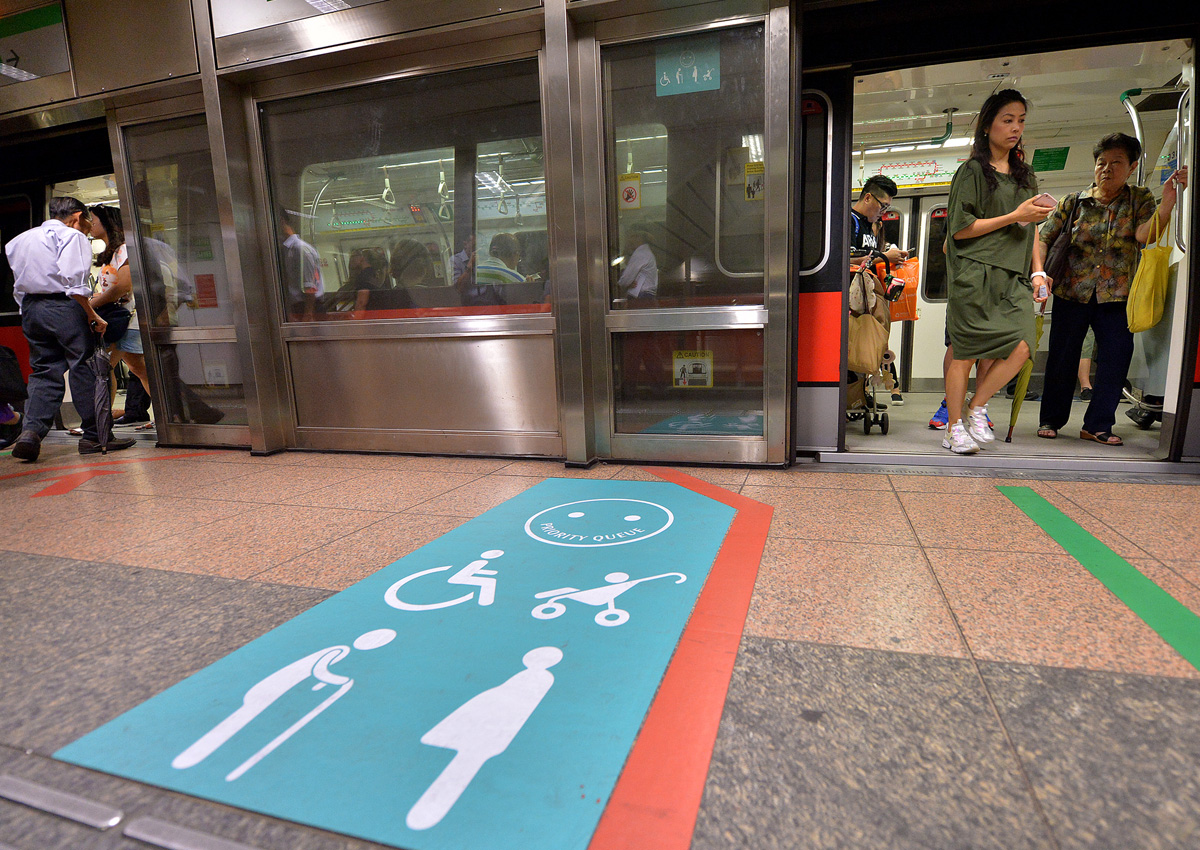In a first here, priority queues will be rolled out at the platform screen doors and passenger lifts of all MRT stations.
The initiative, aimed at encouraging gracious behaviour among commuters, will cater to wheelchair users, pregnant women, the elderly and parents with strollers – by allowing them to board the train or enter the lift first.
Announcing this yesterday, the Land Transport Authority (LTA) said the priority queues will be implemented at six stations first, with feedback gathered from commuters over the next two months.
Based on this, LTA said it may modify the design of the priority queue stickers before calling a tender to roll out the programme across the MRT and LRT network.
LTA chief executive Chew Men Leong said: “As Singapore becomes more car-lite, it is important that we have initiatives in place to make public transportation user-friendly for commuters with various needs.”
The pilot stations are the North-South Line’s Novena station; the North-East Line’s Chinatown, Outram Park and Sengkang stations; the East-West Line’s Outram Park station; and the Circle Line’s Kent Ridge station.
They were chosen for their proximity to hospitals and high usage by seniors, the LTA said.
The programme builds on an earlier scheme by SMRT, which put in priority queues at its MRT station lift entrances starting from 2014.
Almost all the more than 250 trains running across the entire MRT network have spaces allocated for wheelchairs, and the location of priority queues at the platforms will correspond to these spaces – allowing commuters with such needs to reach them easily once they get on board.
An LTA spokesman said 19 older trains are being refurbished to provide for these wheelchair-designated spaces.
Where possible, priority queues at the platforms will also be closer to the lifts and away from the escalators where passenger traffic is heaviest, the LTA said.
These priority queues will complement the existing queue markings at the platform, which are meant to let passengers on the train alight first.
Dr William Wan, general secretary of the Singapore Kindness Movement, said the signs are just a reminder, and it is up to Singaporeans to “own” them.
“Signs create the norms, but people have to act according to them. Sometimes, people also have to speak up and remind others who are not gracious,” he said.
Commuter Alan Santhana, 41, a general manager, said: “The priority stickers help to define a system where people give way. But more station ambassadors can also be deployed to help those with the need too.”
adrianl@sph.com.sg

This article was first published on April 1, 2016.
Get a copy of The Straits Times or go to straitstimes.com for more stories.






